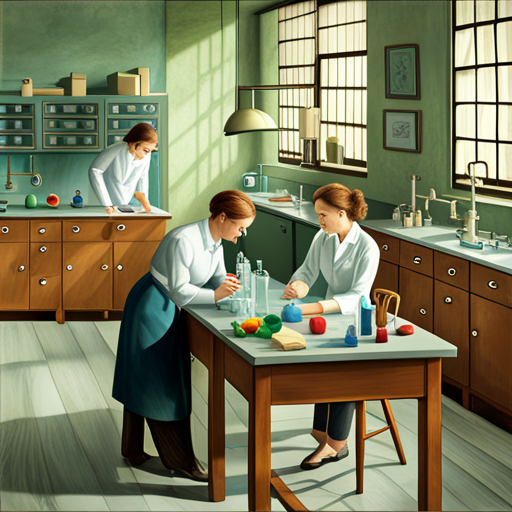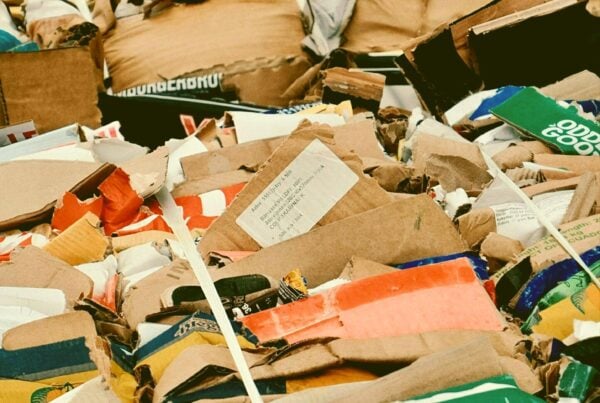 Ireland has a high level of pharmaceutical and biotech companies operating in the country. Laboratories are essential for the Irish economy, research purposes and they each generate a vast amount of waste. Waste from laboratories can be hazardous to both human health and the environment. Today, many industries and sectors, including laboratories, are adopting sustainable practices to reduce the carbon footprint. In this blog post, we will discuss the importance of recycling in Irish laboratories.
Ireland has a high level of pharmaceutical and biotech companies operating in the country. Laboratories are essential for the Irish economy, research purposes and they each generate a vast amount of waste. Waste from laboratories can be hazardous to both human health and the environment. Today, many industries and sectors, including laboratories, are adopting sustainable practices to reduce the carbon footprint. In this blog post, we will discuss the importance of recycling in Irish laboratories.
Environmental Benefits of Recycling
A University of Exeter study found that the average bench scientist generates more than 1,000kg of waste compared to 60kg for the average person. So the environmental benefits of cutting down on this amount will be significant. Recycling helps to reduce greenhouse gas emissions, saves energy and raw materials, and supports a circular economy. Recycling laboratory waste such as glass, plastic, metals, and paper reduces landfill waste. Additionally, recycling saved materials helps to reduce the need to extract virgin raw materials from natural resources, thus helping conserve natural resources.
Health and Safety Benefits of Recycling
Proper recycling of hazardous waste is a legal requirement enforced by the Environmental Protection Agency in Ireland. Furthermore, it is necessary to safeguard workers who process hazardous waste.
Cost Benefits of Recycling
Saving money is one of the most significant benefits of recycling. By striving for a zero waste approach an Irish lab here “went on to save €15,800, shrink their non-chemical waste by more than 95% and reduce their consumption of single-use plastics by 69%.”
Waste Matters are an irish company offering specialised polystyrene recycling for labs. This service further cuts down on the waste a lab would generate.
Recycling reduces the transportation cost of waste to landfills, reduces the purchase of raw materials and products, and also improves the reputation of the laboratory. Efficient recycling programs also help organizations optimise their waste management practices, thereby maximising resource recovery.
Recommended Recycling Practices for Irish Laboratories
Irish laboratories should practice efficient recycling techniques to reduce waste. Waste segregation is crucial to successful recycling, start by segregating different types of waste such as chemicals, paper, glass, metal, plastic, and batteries. Disposal methods for hazardous chemicals should follow strict guidelines. Laboratories must be equipped with safety equipment such as chemical fume hoods, gloves, and protective clothing. Scrap metal and electronics should be sent to reputable recycling vendors.
Professionals for Laboratory Waste Management
Laboratories in Ireland should utilize professional waste management companies, such as Greyhound Recycling, to handle waste materials. We are a company that has evolved and merged with multiple leading national and international companies in the waste processing sectors to provide customised waste management solutions. We offer services to facilitate recycling laboratories waste, ensuring compliance and safety, and safeguarding the environment. For more information, contact us here.
There are also accreditations available for Lab recycling in Ireland such as the MyGreenLab accreditation. The South East Technological University has also launched a helpbook for labs that would like to adopt greener practices.
Conclusion
In conclusion, recycling is an important practice for Irish Laboratories. Proper recycling practices have numerous environmental, financial, and health and safety benefits, making it a crucial step for every laboratory. By implementing efficient recycling programs and utilizing professional waste management companies such as Greenstar, Irish laboratories can reduce their environmental impact and establish a sustainable future. Promoting sustainability within the laboratory industry is an essential initiative, and one that should be taken with great responsibility.





